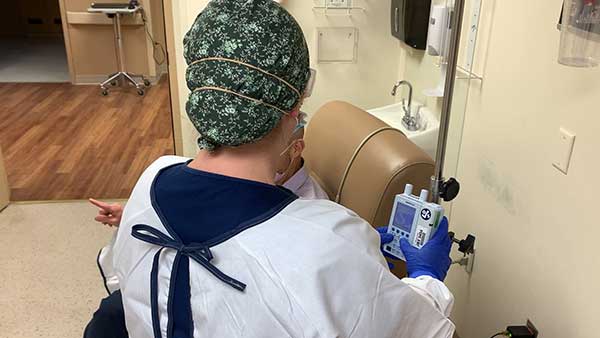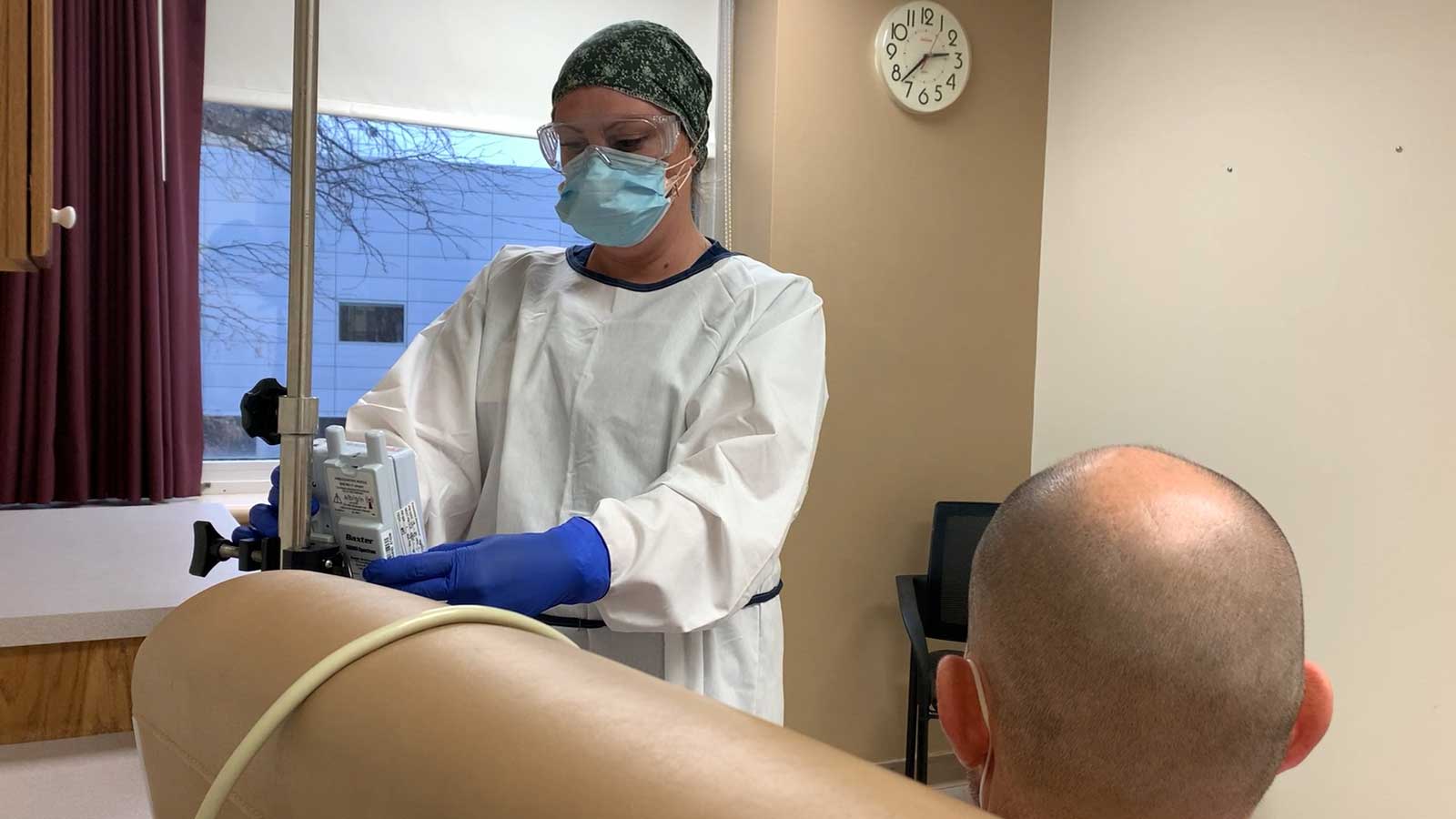

Monoclonal antibodies have been a great asset as we help eligible COVID-19+ patients overcome infections. However, only one type of monoclonal antibody treatment is proving to be as effective in battling the Omicron variant. This type of infusion is in very limited supply and may not always be available for treatment.
To be evaluated to determine if monoclonal antibody treatment might be appropriate, please contact your primary care provider. Don't have a provider? Find one near you.
What is Monoclonal Antibody Treatment?
Monoclonal antibody treatment is a neutralizing antibody medicine – meaning, it contains man-made antibodies that are like the antibodies of patients who have recovered from COVID-19. These antibodies may help reduce the amount of COVID-19 virus in your body, which could give your body more time to learn how to make its own antibodies. Studies have shown giving this drug early, when diagnosed with COVID-19, can decrease the risk of the virus progressing to the point where a patient would need to be admitted to the hospital.
How does the medicine work?
This medicine contains man-made antibodies that are similar to the antibodies of patients who have recovered from COVID-19. These antibodies may help limit the amount of COVID-19 virus in your body which could give your body more time to learn how to make its own antibodies.
How will I take the medicine?
Medication is given to you either through a vein (intravenous or IV) for at least one hour. You will receive one dose of this medicine. After the infusion, you will need to stay for one more hour to make sure you are feeling okay to go home.
What are the side effects?
Side effects can range from mild to serious and may include:
- Wheezing or trouble breathing
- Swollen lips, face or throat
- Flu-like symptoms (fever, sweating, chills, cough, sore throat, headache or muscle pain)
- Upset stomach (nausea, vomiting or diarrhea)
- Itching, swelling, rash or hives
- Dizziness or low blood pressure
- Changes in your heartbeat
- Back and chest pain
Tell your doctor or nurse right away if you have any side effects during or after your infusion. Serious and unexpected side effects may occur.
What if I am pregnant or breast feeding?
This medication has not been used on many pregnant or breastfeeding mothers. For a mother and unborn baby, the benefit of receiving treatment may be greater than the risk from treatment. If you are pregnant or breastfeeding, discuss with your health care provider.
What is an Emergency Use Authorization (EUA)?
The United States FDA has made this treatment available under an emergency access mechanism called an Emergency Use Authorization (EUA). The EUA is supported by a Secretary of Health and Human Service (HHS) declaration that circumstances exist to justify the emergency use of drugs and biological products during the COVID-19 pandemic. This medicine has not undergone the same type of review as an FDA-approved or cleared product. The FDA may issue an EUA when certain criteria are met, which include that there are no adequate, approved and available alternatives. In addition, the FDA decision is based on the totality of scientific evidence available showing that it is reasonable to believe that the product meets certain criteria for safety, performance and labeling, and may be effective in treatment of patients during the COVID-19 pandemic. All of these criteria must be met to allow for the product to be used in the treatment of patients during the COVID-19 pandemic. The EUA for infusion treatment is in effect for the duration of the COVID-19 declaration justifying emergency use of these products, unless terminated or revoked (after which the product may no longer be used).
